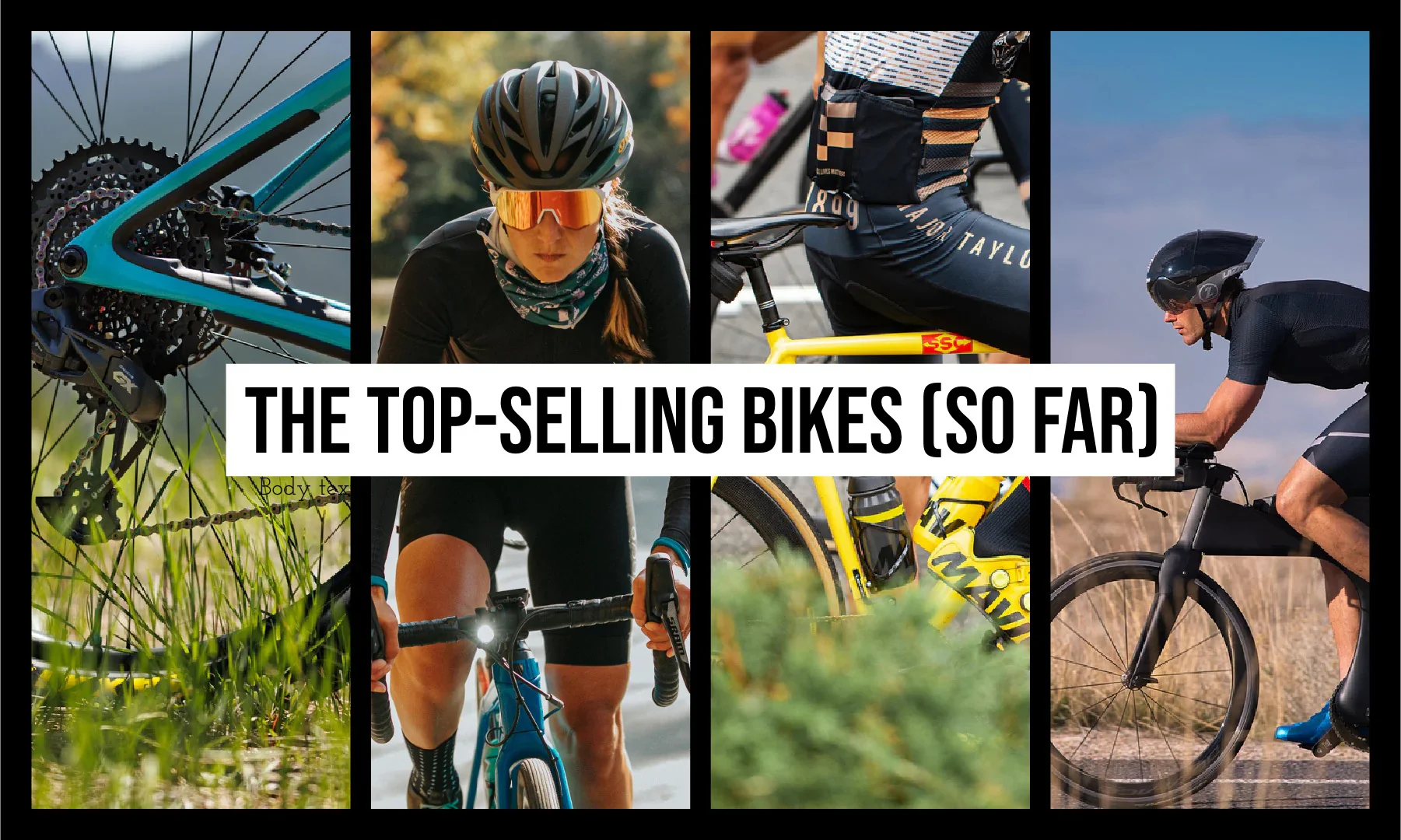A small thing I’ve done in recent years to reduce my own carbon footprint is choose sustainable brands when buying new clothes. It’s easy to find tons of great options for casual wear, but I haven’t had much luck with the cycling kits.
That’s why I’m super excited that TPC has started carrying Ornot apparel this year. Why do I like Ornot cycling apparel?
- High-quality kits with understated branding
- It’s a Climate Neutral Certified brand
- It donates 1% of profits to One Percent For the Planet
- Many kits are made in the USA
- Many kits use recycled fabrics
Ornot is one of the best sustainable apparel brands in the business (along with Patagonia I'd say!). Since its inception, Ornot’s goal has been to change the cycling apparel landscape for the better, and reducing its carbon impact is one of its core values. Read on to find out who Ornot is, what they do, and why they matter.
Who/What Is Ornot?
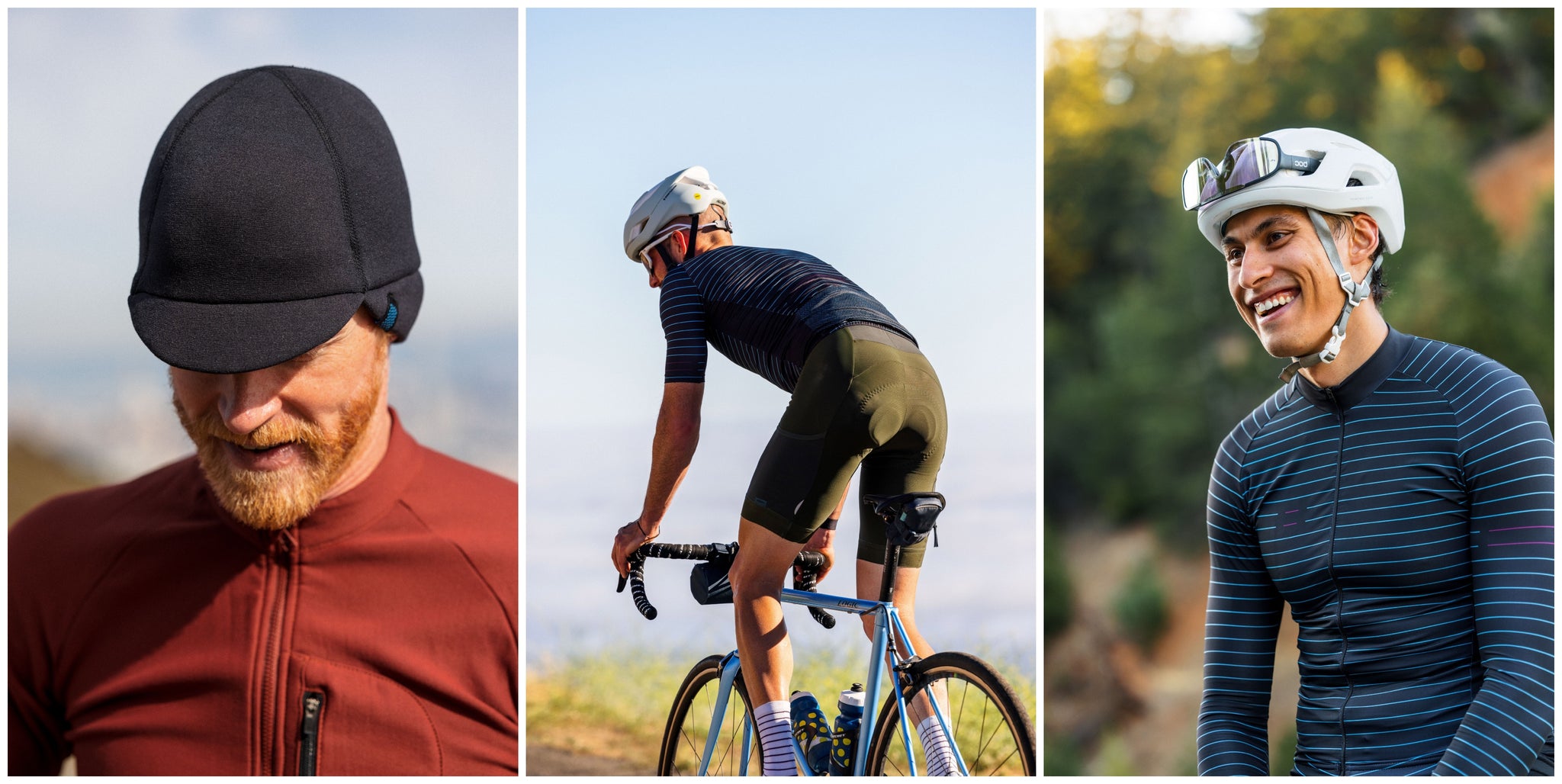 Ornot is a small company based in San Francisco. It was founded in 2013 by Matt Quann as a reaction to the growing number of cycling kits sporting massive logos.
Ornot is a small company based in San Francisco. It was founded in 2013 by Matt Quann as a reaction to the growing number of cycling kits sporting massive logos.
“I started Ornot when I was embarrassed by my racing ‘team kit’ and its title sponsor,” he explained. “This was the catalyst for me to make my own clothing that was minimally branded, almost to the point of not showing the logo at all.”
As someone who doesn’t enjoy looking like a walking billboard, I really appreciate brands like Ornot that take a more understated approach to design. As a writer, I also appreciate the endless wordplay made possible by its name.
“I wasn't sure how it would evolve,” Quann explained. “It could have been just clothing or perhaps a media or art project. That's why Ornot was the perfect name. I just typed the word ‘Ornot’ in my design file and it clicked. I felt like Ornot was the perfect answer to the seriousness of cycling.
"It was a snarky, open-ended, playful way to describe my take on cycling themes (i.e. you could make a training plan, Ornot, you could do a proper warm-up, Ornot, we could ride dirt, Ornot, and… Ride today, Ornot).”
Climate Neutral Certified
 In 2019 Ornot became a Climate Neutral Certified brand. Climate Neutral certification is a globally-recognized standard for carbon accountability.
In 2019 Ornot became a Climate Neutral Certified brand. Climate Neutral certification is a globally-recognized standard for carbon accountability.
“To achieve certification, we measure our carbon footprint each year with the help of Climate Neutral,” Quann explained. “Then, we develop a plan to reduce our footprint because reduction is a crucial component for any individual or business that cares about CO2 emissions.
Ornot has reduced the carbon emissions of its own operation as much as possible, and it offsets the rest by purchasing verified offsets that actively remove carbon from the atmosphere. This money subsidizes programs that restore degraded forests, capture biogas from livestock, and capture methane gas from landfills. This helps make our air cleaner and slows climate change.
“Each carbon credit removes or avoids 1 tonne of carbon emissions,” Quann said. “While carbon credits and reduction plans aren’t the sole solutions to climate change, they are an essential step, and if every business participated, the results could be transformative.”
One Percent For the Planet
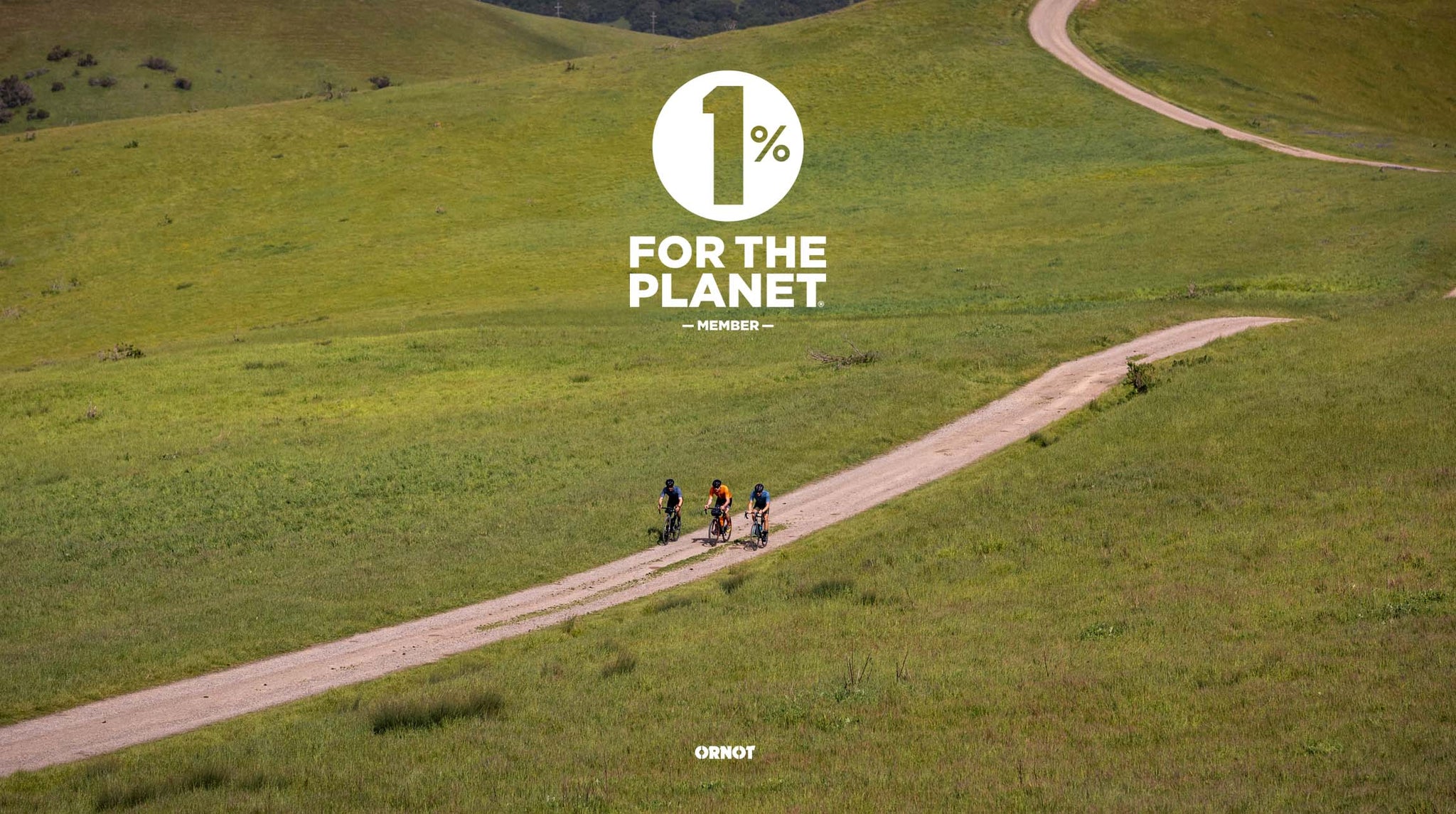 One Percent for the Planet is an international organization whose members contribute at least one percent of their annual revenue to environmental causes. Ornot donates 1% of every sale directly to highly vetted environmental nonprofit organizations.
One Percent for the Planet is an international organization whose members contribute at least one percent of their annual revenue to environmental causes. Ornot donates 1% of every sale directly to highly vetted environmental nonprofit organizations.
“With every purchase made, you are not only supporting a small business and donating 1%, but you are pressuring others to make that same pledge,” Quann said. “Seismic changes happen when everyone's involved."
For a small business like Ornot, which doesn’t have venture capital or outside investment, 1% of its total revenue is a significant commitment.
“We believe making this pledge is an essential component of doing business the right way,” Quann explained. “Everyone at Ornot already makes their own personal choices to help mitigate their impact, but as a company, we should do something too. Committing to 1% takes us a step further and literally puts our money where our mission lies.”
Domestic Manufacturing
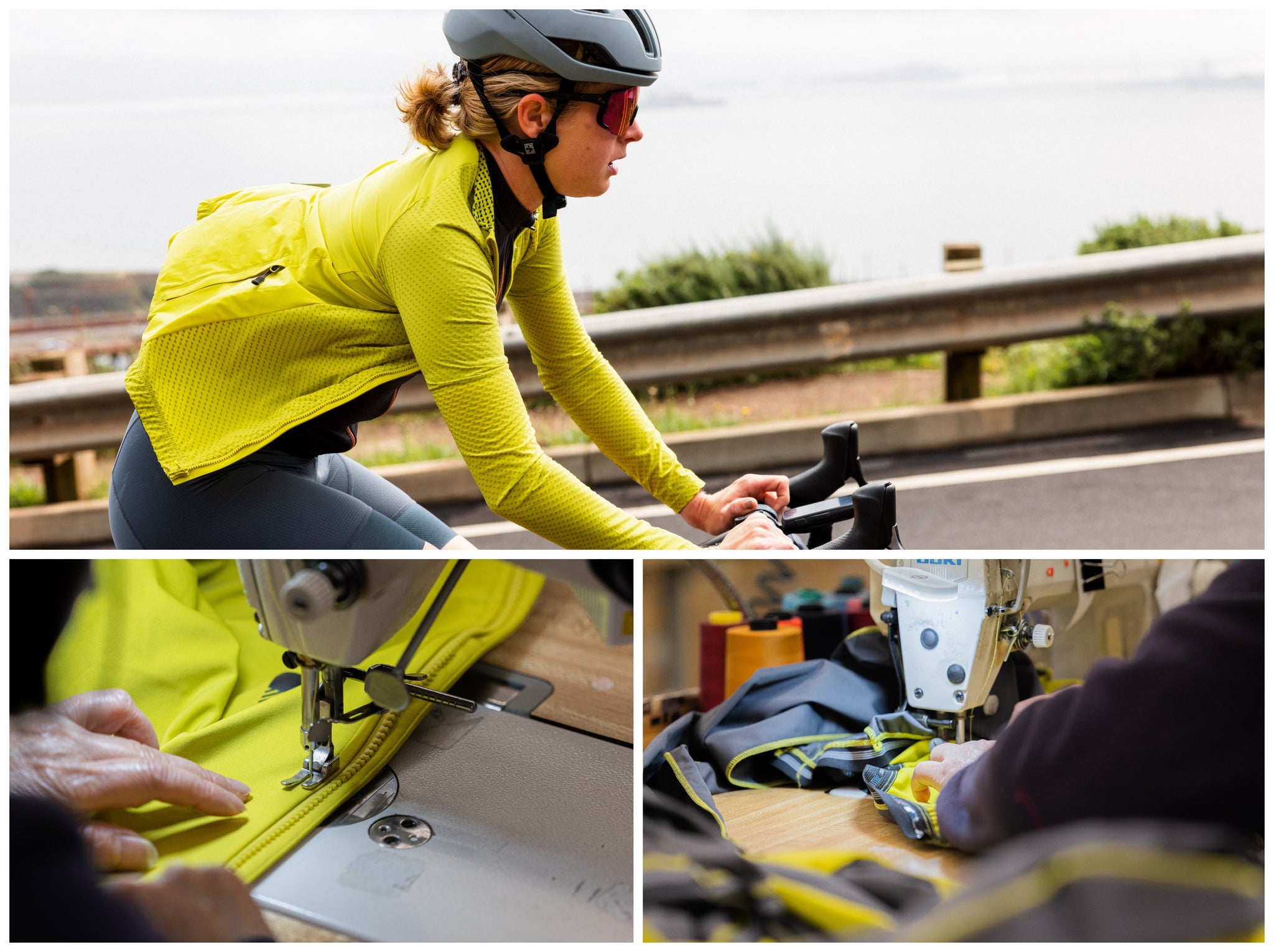 Ornot currently manufactures 70% of its products in the USA, and 90% of that is done in California. This inherently cuts its carbon footprint due to transportation efficiencies, local environmental regulations, and California's commitment to renewable energy.
Ornot currently manufactures 70% of its products in the USA, and 90% of that is done in California. This inherently cuts its carbon footprint due to transportation efficiencies, local environmental regulations, and California's commitment to renewable energy.
“It’s great to be able to drive to the factory and actually see our clothing being made, not to mention how much easier it is to ship samples, trims, and final production runs,” Quann said.
But what about the Ornot products being made outside of the US?
“As we look at our manufacturing through a climate lens with regard to emissions, sometimes it makes more sense to produce some items closer to where the raw materials are being made,” Quann explained. “This is why we make many of our bib shorts and some of our cycling jerseys in Europe. Our production partners in the EU have amazing facilities and are also committed to sustainable manufacturing. Our two main producers generate their own solar power which is used for production.”
Recycled and Biodegradable Fabrics
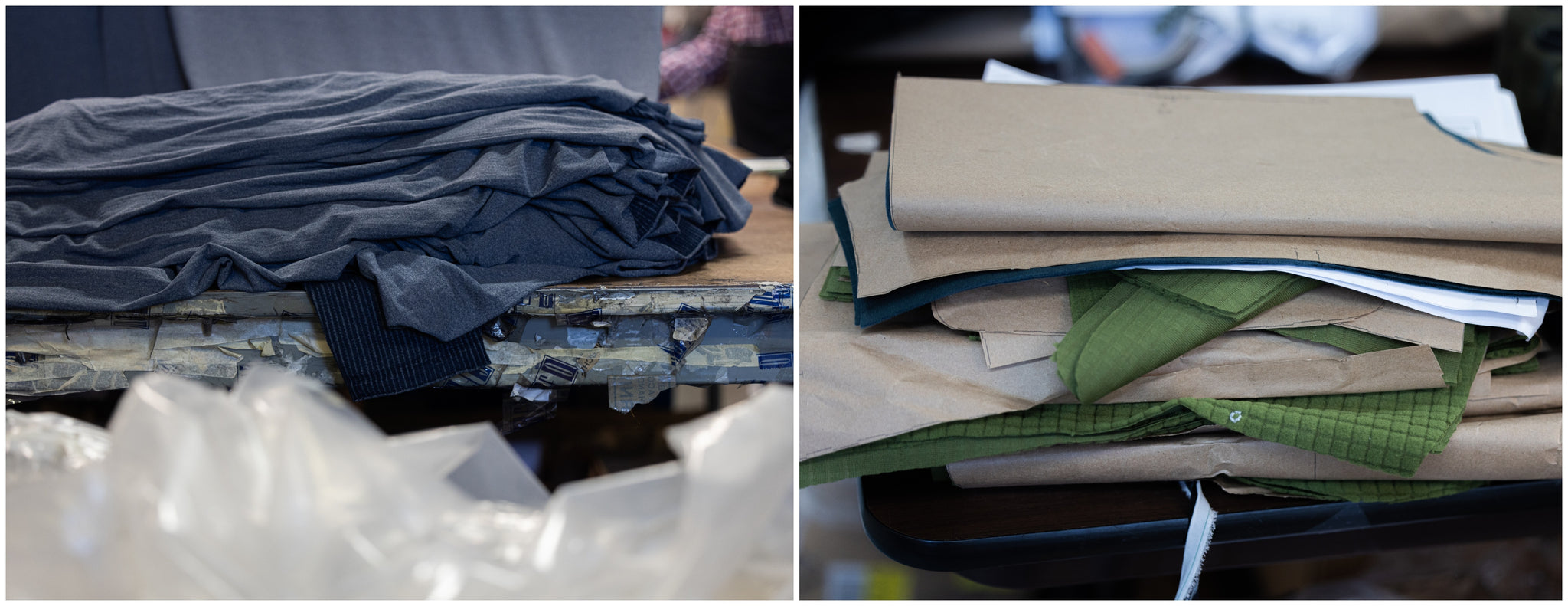 I personally have an obsession with buying clothes made from recycled materials and fabrics. Now, I’m super excited to have the same option with my cycling kits.
I personally have an obsession with buying clothes made from recycled materials and fabrics. Now, I’m super excited to have the same option with my cycling kits.
“We started transitioning to recycled fabric in 2018, so it’s been a journey, but each year it becomes easier,” Quann said. “We already use post-consumer recycled plastic in our socks. Our fabric partner, Polartec, has committed to 100% recycled materials and biodegradability which is a big deal. We source recycled materials whenever possible, and to take it a step further, we often rule out fabric that isn’t offered in a recycled content version.
“In 2023 about 90% of our products released will be made using recycled content. For 2023 we are also eliminating PFAS from any last holdouts and moving to C0 DWR coatings across the board.”
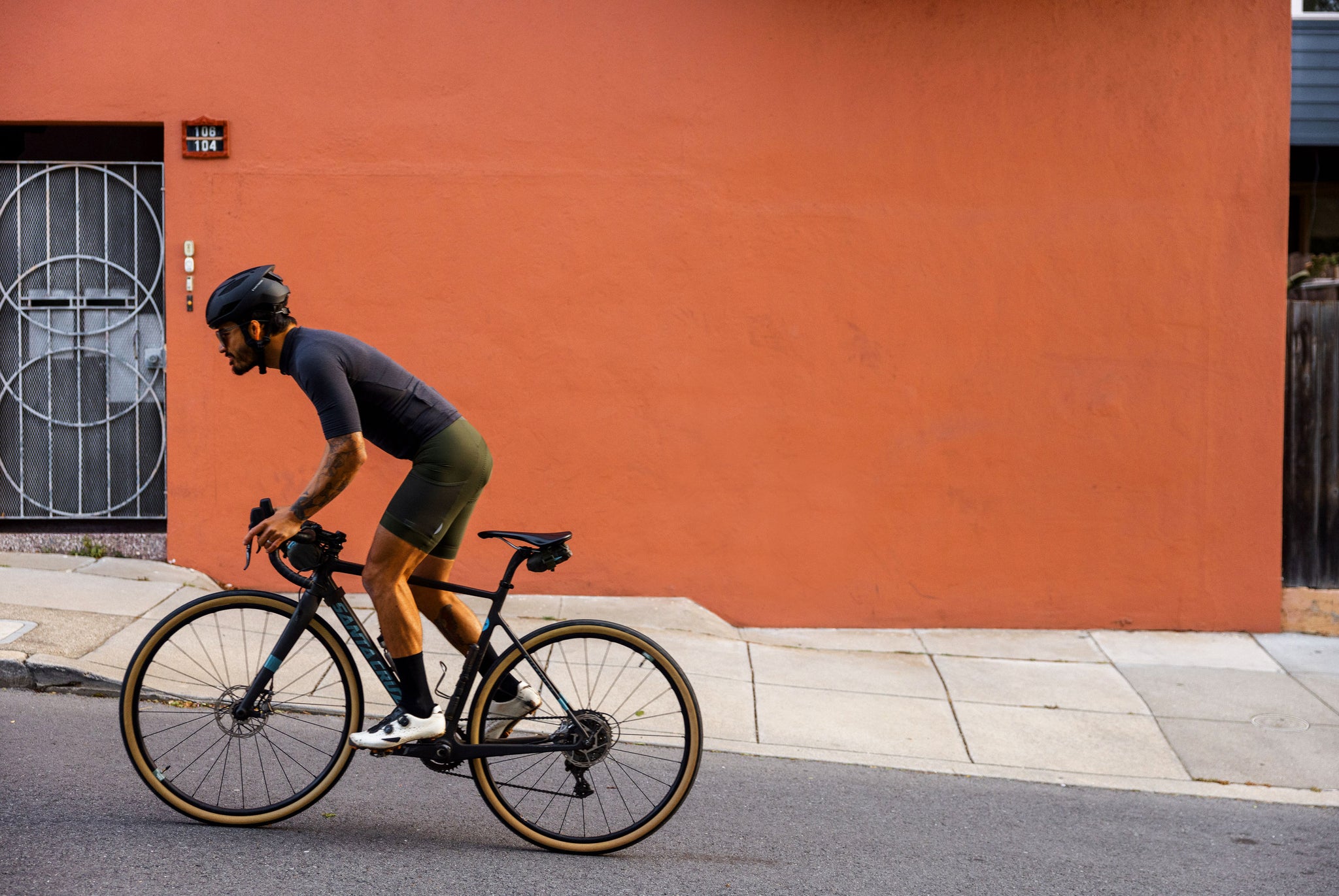 Recycled and PFAS-free fabrics alone are enough reason for me to choose Ornot. But the addition of its Climate Neutral certification and its commitment to One Percent for the Planet make choosing Ornot a no-brainer for any environmentally conscious rider. If you’re interested in supporting sustainable cycling apparel, be sure to check out our Ornot collection!
Recycled and PFAS-free fabrics alone are enough reason for me to choose Ornot. But the addition of its Climate Neutral certification and its commitment to One Percent for the Planet make choosing Ornot a no-brainer for any environmentally conscious rider. If you’re interested in supporting sustainable cycling apparel, be sure to check out our Ornot collection!
Photos courtesy of Ornot.





